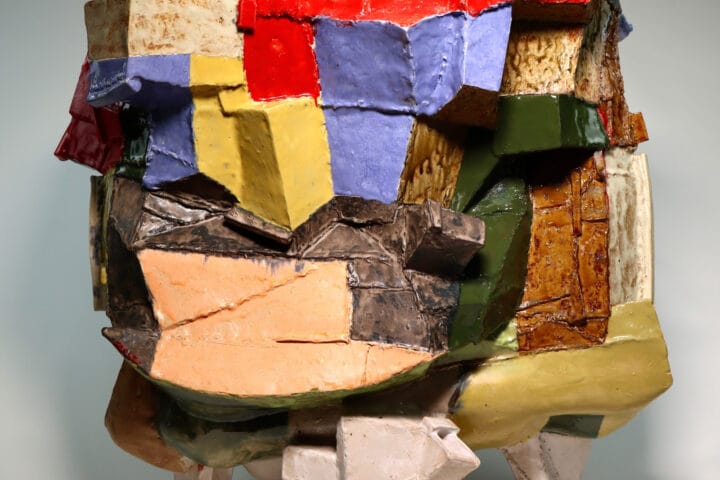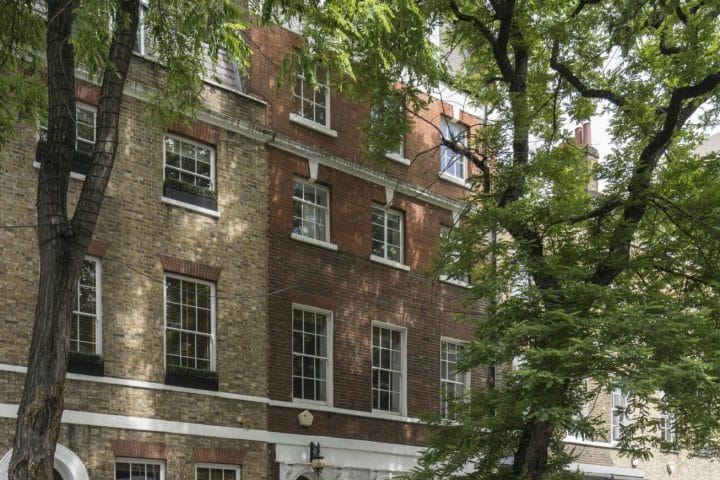The Ljubljana Biennale of Graphic Arts reveals From the void came gifts of the cosmos as the title of its 35th edition that takes places from 15 September 2023 – 14 January 2024. Joining artistic director of this year’s Biennale Ibrahim Mahama, curators Exit Frame Collective, Alicia Knock, Selom Koffi Kudjie, Inga Lāce, Beya Othmani and Patrick Nii Okanta have been invited to respond to the Biennale’s theme, guided by the chosen title.
Alongside the participating artists, this complex council of curatorial entities synchronously imagines the Biennale as a void and a site of potential. As an ecosystem of friendships and solidarities, unearthed histories of resistance, liberation and transnational relations beyond the centre-periphery framework that holds the possibility of transforming emptiness into gifts of the cosmos. The void, in this context, suffices as an egalitarian framework out of which multiplicities emerge, while also operating as a site of artistic indeterminacy in the spirit of inclusion.
The curatorial direction is inspired by Mahama’s long-term interest in the promise of the affirmative and emancipatory politics of Ghana’s first president, Pan-African theorist Kwame Nkrumah. It was his post-independence vision that inspired the creation of the intellectual, cultural, scientific and economic infrastructure that defined Ghana’s first republic between 1960 and 1966. This vision was also expressed in the form of Non-Aligned collaborations culminating in the co-formation of the Non-Aligned Movement. During this post-war period, the work on institutional buildings in Ghana by architects, designers, structural engineers and urban planners from the former Yugoslavia, Hungary, Poland and the German Democratic Republic, among others, was typical of the Socialist Internationalist cooperative models.
From the void came gifts of the cosmos reflects on the entanglements of built environments, infrastructures and materials with the modern histories of anti-colonial and anti-imperial struggle, nationalism, internationalism, and their contemporary echoes. Examining the ways in which the revolutionary spirit of the post-Afro-Asian independence era permeated built structures, the Biennale explores the ongoing legacy of this ethos. What forms of life inhabit these infrastructures today? How can the Biennale become fertile ground for thinking about future, past and present relationships between the bodies and territories mediated, transformed and/or policed through architectural forms? Can the void created by past political failures serve as the soil for nurturing different relationships based on solidarity, friendship and intimacy? The ecological disposition of this Biennale embraces synthetic, virtual, mechanical, biological, discursive and other contingent forms of artistic determinations.
The history of the Ljubljana Biennale, founded in 1955 amid the Cold War, mirrors a similar internationalist spirit. From its inception, it has invited participants from the Non-Aligned partner countries in Africa and Asia, in addition to artists from the Soviet Union and the West with a special emphasis on the former. Thus, the Biennale’s archive serves as a journal revealing traces of other important gatherings and workshops in printmaking, and other mediums such as film. The forthcoming edition of the Ljubljana Biennale of Graphic Arts will attempt to look back at how visual culture created spaces of potentiality, transcending borders and enabling networks of Southern solidarities.
The main programme includes an exhibition with site-specific commissions across multiple venues including MGLC Tivoli Mansion, Cukrarna and MGLC Švicarija. A parliamentary form, similar to the Parliament of Ghosts at Ibrahim Mahama’s home institution in Tamale, will be a central gathering place for the Biennale, activated by talks, screenings, performances and an educational programme. For the 35th edition, students from local art schools have been invited to form collectives and work on new commissions, and a complementary reader will be published in autumn 2023 to further expand the notions and histories explored by the curatorial ensemble.
Nurturing a growing network of friendship and solidarity that transcends borders, this year the Ljubljana Biennale collaborates with two sister projects across Latvia and Lithuania, co-curated by Alicia Knock and Inga Lāce: the Kaunas Biennial in Kaunas, Lithuania (opens 25 August) and the annual Contemporary Art Festival Survival Kit 14 in Riga, Latvia (opens 7 September).












